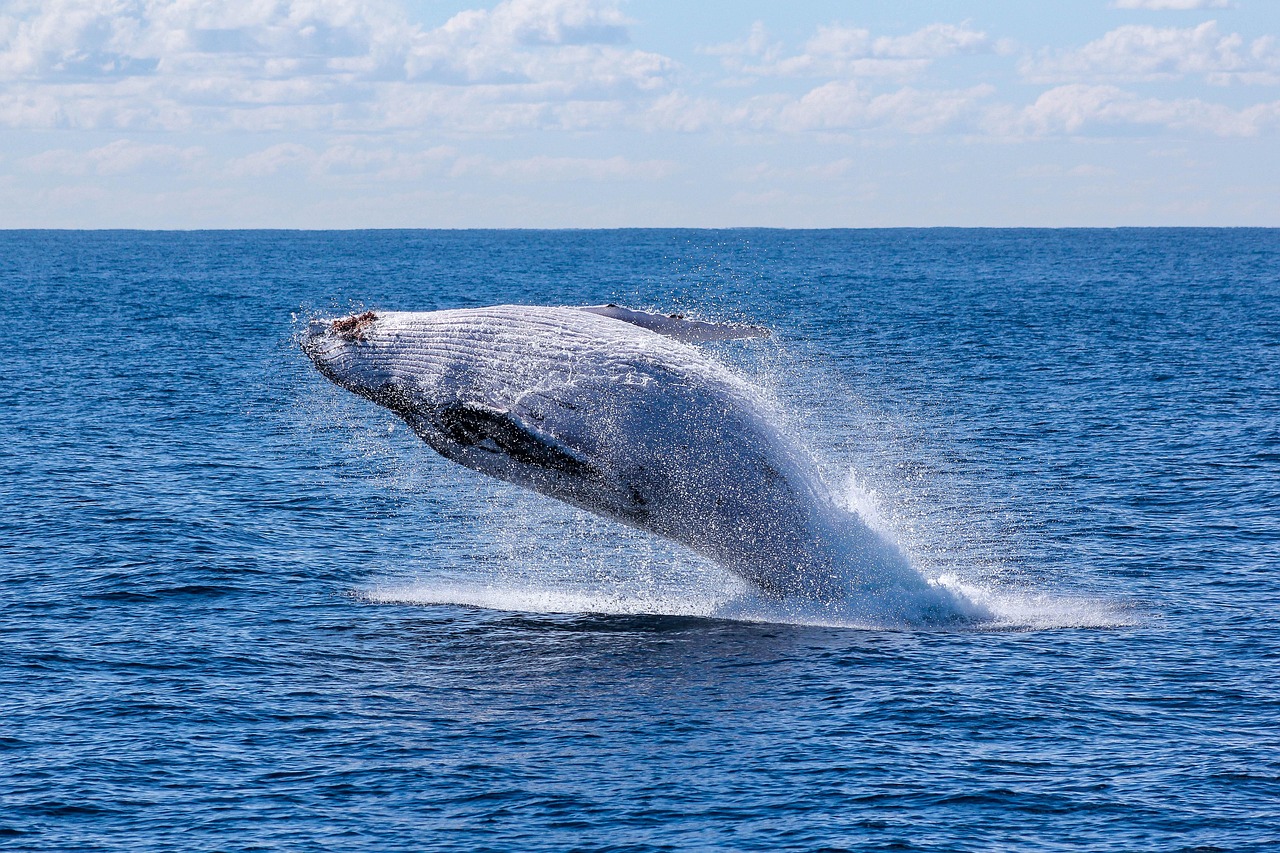Blue Whales Are Falling Silent
Blue whale songs—those haunting low-frequency moans that once reverberated across the oceans—have fallen eerily quiet in many regions. Scientists now believe this quietness is more than unusual—it’s a strong warning sign that the ocean is under serious pressure.
In the California Current Ecosystem, researchers using ocean-bottom hydrophones recorded a 40% drop in blue whale vocalizations from 2015 to 2021, especially following the intense marine heatwave known as “The Blob”. This massive warming event raised ocean temperatures by 4.5 °F (2.5 °C) across roughly 2,000 miles of the North Pacific, triggering toxic algal blooms and devastating krill populations, the primary food source for blue whales.
“It’s like trying to sing while you’re starving,” said MBARI oceanographer John Ryan, neatly summarizing the crisis.
Singing as a Barometer of Ocean Health
Whale song isn’t just art—it’s a lifeline. Blue whales often sing to signal vibrant feeding zones to each other. When krill numbers dropped due to warming, these majestic creatures had to devote more time to searching for food—and less to singing. Males may skip courting, while food-hungry whales stay silent.
Different Whales, Different Rules
Interestingly, humpback whales fared better during the same period. Since they can also feed on small fish like anchovies and sardines, they adapted to shifting food resources more flexibly and managed to keep singing—sometimes even more frequently. Unlike humpbacks, blue whales, which rely heavily on krill, continue to be at risk.
More than Heat: Noise and Evolution in the Deep
Although food scarcity is a leading cause of silence, other factors could also play roles:
- Noise Pollution: Increasing shipping, sonar, and industrial activity generate low-frequency noise that overlaps with whale vocalizations. This acoustic masking might pressure whales to alter or avoid singing.
- Long-Term Sound Trends: Over recent decades, blue whales globally have been lowering their song pitch. Some suggest this change may stem from population recovery—larger numbers mean individuals can communicate without needing as loud or high-pitched calls.
Why This Silence Matters to All of Us
Blue whales aren’t just ocean giants—they’re ecosystem architects. Their movements redistribute nutrients, stimulating marine productivity. If blue whales can’t find enough food or successfully reproduce, the impact could spread through the entire marine ecosystem, affecting many other species along the way.
Moreover, changes in singing behaviour act as a window into marine ecosystem health. If whales fall silent, it could mean deeper ecological shifts—due to warming, pollution, or prey depletion. We ignore those silences at our peril.



Excellent article
Thanks a lot Saurabh.